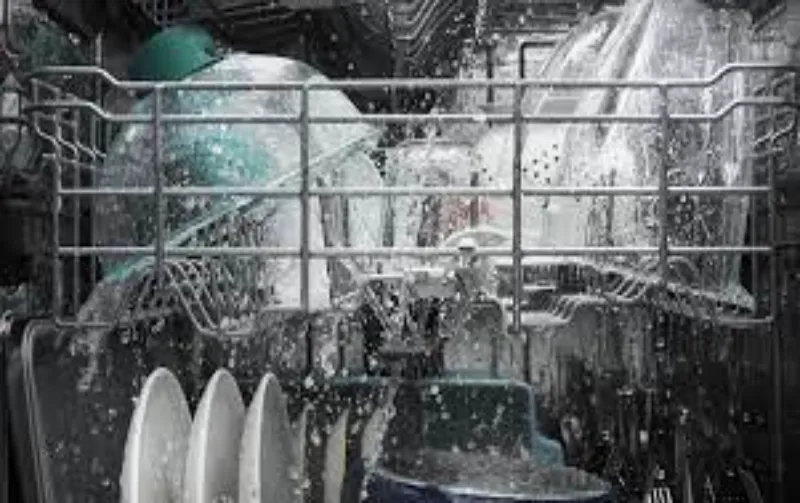Can You Run a Dishwasher With Cold Water? Surprising Facts!
We may earn affiliate fees for purchases using our links (at no additional cost to you).
You can run a dishwasher with cold water, but it may affect cleaning performance and efficiency. Most dishwashers are designed to heat water for optimal sanitization and grease removal.
Running a dishwasher typically relies on a built-in heater to raise the water temperature to a level that can effectively break down food residues and sanitize dishes.
This process usually requires hot water, typically around 130 to 140 degrees Fahrenheit, to ensure that dishes come out clean and free of bacteria.
Utilizing cold water in a dishwasher could save on energy costs, as it bypasses the need for heating, but this might compromise the unit’s cleaning capabilities.
Many modern dishwashers are engineered with sensors and controls to guarantee the best results, often predicated on the use of hot water.
Considering the machine’s design and the manufacturer’s recommendations will ensure the longevity of the appliance and the cleanliness of your dishes.

The Impact Of Cold Water On Dishwasher Performance
Dishwashers are designed to operate using hot water for optimal performance.
The primary distinction between cold water and hot water usage in dishwashers is their impact on cleaning efficacy and energy consumption.
Generally, hot water aids in dissolving grease and food remnants more effectively, which enhances detergent performance and results in cleaner dishes.
Energy efficiency considerations may prompt some users to consider cold water dishwashing.
Washing with cold water conserves the energy that would otherwise be spent on heating water, which might be appealing from a sustainability standpoint.
Nonetheless, one must weigh the potential increase in energy usage if the dishwasher cycles need to be longer or if dishes require additional cycles for proper cleaning.
Before running a dishwasher with cold water, it’s essential to analyze key considerations such as the dishwasher’s compatibility with cold water cycles, the type of detergent used, and the nature of the soiled dishes.
Certain models may accommodate cold water better, and some detergents are formulated to function at lower temperatures.
Identifying the right combination can help maintain cleaning efficacy while reducing energy usage.
Water Temperature And Cleaning Effectiveness
The effectiveness of a dishwasher hinges significantly on the water temperature utilized during the cycle.
A common belief is that hot water is essential for optimal cleaning and sanitizing.
Nonetheless, modern dishwashers and detergents are increasingly designed to perform efficiently with cold water.
Utilizing cold water can lead to energy savings and is considered more environmentally friendly.
Still, it’s crucial to understand that while cold water is adequate for light cleaning, it may not be as effective for removing grease and stuck-on food.
The inherent properties of hot water make it superior in breaking down oils, resulting in a more thorough clean.
Users should assess the soil level of their dishes and determine if cold water will yield satisfactory results or if warmer temperatures are needed for a more intense wash.
Environmental And Cost Benefits Of Cold Water Dishwashing
Running a dishwasher with cold water significantly reduces energy consumption, leading to a more sustainable kitchen.
Most of the energy used by dishwashers goes towards heating water.
Therefore, using cold water can decrease energy usage and contribute to a smaller carbon footprint. Utility bills often reflect the energy saved, which means lower monthly expenses for households.
The transition to cold water doesn’t only offer environmental benefits but also substantial potential cost savings.
| Sustainability Aspect | Cost Impact |
|---|---|
| Lower energy consumption for heating water | Reduced monthly utility bills |
| Diminished environmental impact | Long-term savings on energy expenses |
Frequently Asked Questions On Can You Run A Dishwasher With Cold Water
Does Cold Water Affect Dishwasher Performance?
Can Dishwashers Heat Water Internally?
Is Preheating Water Necessary For Dishwashing?
What Temperature Water Do Dishwashers Use?
Conclusion
Running a dishwasher with cold water is possible yet less common. It suits eco-conscious users and entails specific detergents and cycles.
Remember, effectiveness varies with soil level and dish types. For greener cleaning, consider testing this method.
Always consult your machine’s manual to optimize performance.